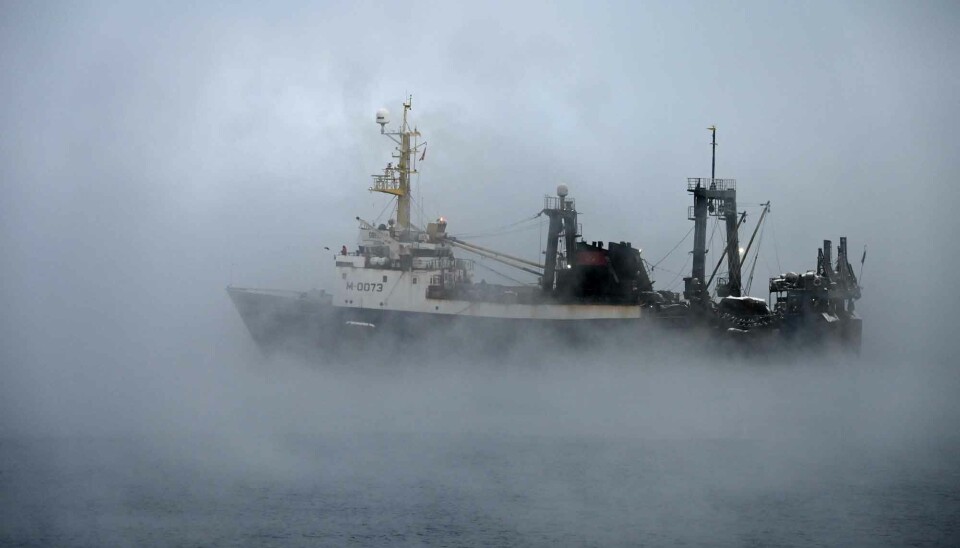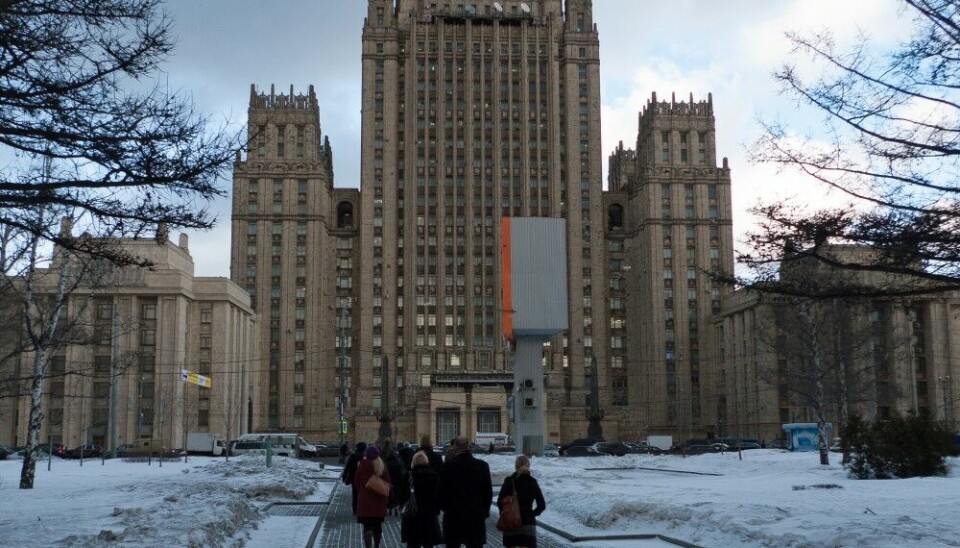
Moscow threatens Oslo over Barents fisheries
The Russian foreign ministry summons Norway's chargé d'affaires and falsely claims that new sanctions against Murmansk-based seafood companies constitute a violation of the Norwegian-Russian fishery agreement of 1976.
According to Moscow, the Norwegian sanctions against Russian seafood companies Norebo and Murmansk Seafood could jeopardise 50 years of bilateral fishery cooperation.
Norway adopted the sanctions on July 7, about three weeks after the restrictive measures were introduced by the EU.
On July 29, chargé d'affaires Ragnhild Johansen was summoned to the Stalin-era skyscraper that houses Sergei Lavrov's foreign ministry.
"The Norwegian side was informed that these unfriendly measures constitute a gross violation of bilateral agreements in the field of fisheries," a Russian statement reads.
The sanctions "undermine the long-standing effective system of management and regulation of joint fish stocks in the Barents Sea and the Norwegian Sea," the ministry explains.

In a verbal cannonade, the representatives of war criminal Vladimir Putin told the Norwegian diplomat that "Oslo's irresponsible actions threaten to undermine the entire complex of bilateral relations in the field of fisheries" and that the Nordic country must "faithfully fulfil its obligations to the Russian Federation under the 1976 fisheries agreement."
Underneath is a clear threat.
"If Oslo is unwilling to return to compliance with the terms of the 1976 agreement, the Russian side will take the necessary measures to protect the interests of domestic fisheries."
However, the warning from Moscow is based on false grounds.
The Norwegian-Russian fishery cooperation of 1976 says nothing about Russian fishing vessels' right to make port calls in Norway.
In an interview with the Barents Observer in 2024, Norwegian expert Geir Hønneland underlined that "port calls are not a part of the fishery cooperation with Russia, it is quite another thing."
According to Hønneland, a leading expert on the bilateral fishery cooperation, the Russian fishery industry actually has great interest in continuing cooperation with the Norwegians. The main reason is that a major part of the stocks are located on the Norwegian side of the maritime border.
A Russian pull-out of the Fishery Commission would ultimately force the Russian trawler fleet back into Russian waters, where fish stocks are far less rich.
Nevertheless, the Russians have over the past three years repeatedly threatened to abandon the Commission if the Norwegians decide to fully block Russian fishing vessels from Norwegian seaports.
Following Moscow's full-scale onslaught on Ukraine, all Russian ships have been banned from visiting Norwegian ports. The exception is fishing vessels that are allowed to make port calls in Tromsø, Båtsfjord and Kirkenes.
Following the sanctions against Norebo and Murmansk Seafood, the number of trawlers in the three north Norwegian ports has shrunk significantly.
In addition to the sanctions against the Russian trawler fleets, Norway is also taking restrictive measures against other Russian maritime interests.
In late 2024, the Norwegian government instructed the Norwegian Maritime Authority to change its practice regarding exemptions for Russian shipmasters on Norwegian-flagged ships. The change meant that exemptions would no longer be granted to Russian shipmasters.
Likewise, Norway is introducing restrictions on Russian pilotage in Norwegian waters.
The country's government proposes to amend regulations so that applications for pilotage certificates or renewal of pilotage certificates for Russian navigators are to be rejected.
The measure comes after repeated warnings from Norwegian intelligence agencies about Russian threats against Norwegian coastal infrastructure and military objects.














